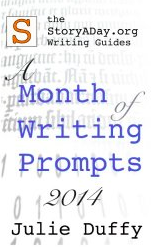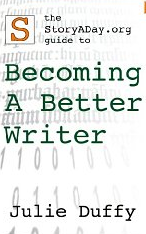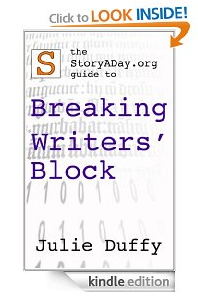Consider the poor golfer. A cheap set of clubs costs $250, and he quickly finds himself tweaking his collection of clubs (a nice new 3-wood for $179, anyone?). Country club dues are rarely less than a couple of thousand a year. Writing, by comparison, is a cheap gig, but that doesn’t mean you should invest nothing! Let’s talk about how you’ll invest time in your writing this year…
Writing is cheap.
All it takes is your brain and some way of recording your creations.
Writing’s low-cost-of-entry makes it the perfect low-risk creative activity …and therein lies the danger.
If you are investing nothing in your writing, what’s to stop you giving up when it gets hard?
I’m here today to make a case that you should consider investing more in your writing this year than you have before.
How To Invest In Your Writing
It might mean you buy more books on the craft of writing.
It might mean hiring a babysitter or a cleaning service from time to time, or negotiating chore-swaps with family members to buy yourself more time to write.
It might simply mean that you spend your time more wisely: actually writing instead of watching TV or browsing writing blogs (a-hem).
It might mean you join a writer’s group, or take an online course, or attend a writer’s conference.
My Writing Investments 2012 – A Case Study
Writing is my hobby, my avocation and my job. And even I don’t spend that much on it.
I consider last year a big year for writing expenditures:
- 25+ books related to writing, StoryADay (plus well-written books I wanted to read for the joy of it) ($250+ and yes, I could have used the library!)
- Writer’s Digest Writers’ Conference in NYC – to develop craft and network ($600+ with travel and accommodation)
- Attended BookExpoAmerica to network ($200+ with travel)
- Joined ML Writer’s Group (and paid my dues) to hang out with other writers, learn from them, share with them. ($25/year plus cost of dinner at monthly meeting.)
- Bought notebooks that I enjoy writing in and quadrille paper that I can plan things out on. ($50?)
- Bought apps to help with note-keeping and planning ($10-20)
- Hosting for StoryADay.org (I consider StoryADay and the people who hang out there, part of my writing development. So thanks for being part of it!) ($100)
- Business cards for StoryADay.org ($25)
- Entry fees for three or four writing competitions ($5-20 each)
- Used WorldCat to find local college libraries with books I needed for research (free).
- Participated more in an online writers’ community I find fruitful (free).
My outlays were less than $2000 for the year.
My biggest-ticket items were the two trips to NYC for conferences (particularly the Writers’ Digest one.). I could have replicated some of that with a cheaper conference, closer to home, but for me at that particular time this was the right choice and I was fortunate to be able to afford it.
Happily, the return on my investments was HUGE. In the past year I’ve made massive strides in terms of craft, professional development, networking with fellow writers, in output and in simply *seeing myself as a writer* (which is not to be underestimated). I made good connections and set up some new opportunities. I expect at least some of those investments to pay off in really interesting ways this year.
The Cost Of Other Activities – Comparative Case Studies
Now consider the poor golfer. A cheap set of clubs costs $250, and he quickly finds himself tweaking his collection of clubs (a nice new 3-wood for $179, anyone?). Country club dues are rarely less than a couple of thousand a year. Hiring a golf cart for every round might be $40 and some clubs have monthly restaurant minimums (use it or lose it). Even if he plays as a guest he’s looking at $50-$100 per round (or more), plus cart fee and dining costs. And what about lessons? And the cost of hitting the driving range in the winter when the course is snowed out?
My spendy year is starting to look kind of frugal, now!
And what about the ardent football fan? The cheapest tickets to see my local football team are $60 a game (if you can get them). If you’re a Green Bay Packers fan and are lucky enough to have a blood relative who’s willing to sign over their season tickets to you, it’ll set you back $1400 per seat just for the transfer after which you are obliged to buy ten tickets a year (at an average price of $260 per seat per game).
It Isn’t All Or Nothing, Is It?
Of course not.
There are plenty of people who tell you going to games is over-rated. They’re happy to party at home and watch the game on their big-screen TV with a few friends, but even that ain’t free (TV: $800-2000, DirecTV Sunday Ticket subscription $199-300/year, nachos and beer, $200+/year).
Or you could watch the game for the price of a couple of Bud Lights (and maybe a babysitter) at your local bar. But I’m willing to be that the most ardent fan in the bar has, at some point, wondered if they might be happier with a season ticket in their back pocket.
And every writer with a pencil and paper has wondered if things might be easier with a word-processor. Every mystery writer has wondered if there might be tricks they could learn from more experienced writers. Every professional in every field needs instruction if they are to progress.
You Don’t Need Season Tickets (But Going To A Game Or Two Might Be Nice)
You don’t have to spend $4000 a year on tickets to call yourself a Packers fan.
You don’t have to spend thousands on courses and books and conferences to develop your writing.
But at some point you’re probably going to feel the pull to subscribe to a writers’ magazine. Or join a group. Or take a course. Or go to a conference.
Deciding What’s Right For You
When my friend told me she’d been offered the chance of taking over some family season tickets to the Green Bay Packers, she told me about the transfer fees and the ticket prices and the hours-in-the-car-with-kids-there-and-back. Oh and the windchill. My jaw dropped lower and lower and my eyes clearly read “You must be crazy!”.
But that’s because I know nothing about football culture. I’m not from Wisconsin. (I’m not even from the US!). I didn’t know that people sign their babies up to the Packers’ waiting list before they even sign the birth certificate. People deed their place on the waiting list to their heirs in their wills! Season-ticket holders sell unused tickets to other people, and there’s never a shortage of buyers. Oh, and she and her husband are huge fans, who go to games whenever they can.
$1400 a seat for a transfer fee? In that context? She’d be crazy NOT to take on the tickets. I hope my ignorant reaction didn’t color her decision.
Likewise, be careful who you ask for advice when you’re considering traveling thousands of miles and spending hundreds of dollars to attend a conference about writing (which, after all, we all learned to do by the time we were seven, right?).
Another writer may see the value in that. Your golf-playing buddy may not.
Even another writer, at a different stage in their development, may not see the value of the investment you want to make in your writing.
Don’t let anyone derail you.
Likewise, don’t assume that because a conference, or a course, or a book is popular and/or expensive, that it is a ‘must’ for you. My Cheesehead friends had to consider whether, with three small children, the tickets were a sensible investment for them in their real lives not as an abstract idea.
Take some time to think about your goals. Interrogate every opportunity to spend time or money on your craft as it comes along.
Ask yourself:
- Does this get me closer to my goal of being a fiction writer? And what kind of fiction?
- Does this conference focus too much on trying to ‘be published’ and less on developing my writing?
- Have I taken all the classes I can stomach on “better dialogue” and should I be moving on to figuring out how to submit to magazines?
- Do you have a good writing friend you can correspond with (like Emily Dickinson) or do you need to join a writers’ group (think: Shelly, Byron, Mary Wollestonecraft Shelley, Leigh Hunt, Keats!)
How Will You Invest In Your Writing This Year?
What have you been doing to develop your writing and what will you do to step it up this year?
- Been writing a few stories here and there? How about committing to a story every month (or even, dare I suggest, a story a day in May?)
- Reading only fiction? Why not add some non-fiction, to expand the knowledge you bring to your fiction?
- Are you writing and reviewing your work alone? Perhaps its time to join a critique group or sign up for a writers’ conference.
- Read enough inspirational blogs and books about writing? Perhaps its time to try something that has a curriculum (a workbook, a group or a course.)
Parting Points
You are allowed to spend time and money on writing. It’s as important to you as football is to people who claim to ‘bleed green’ (or ‘blue’ or ‘orange’ or whatever). And probably cheaper.
You must make your own decisions about what you need in your writing life right now, and pursue those things.
You — and your stories — are important. Do whatever you can to stalk those stories, capture them, and share them with us. We need them.
Keep writing!




